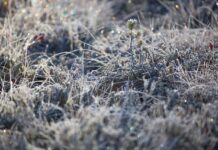What you don’t know can hurt you. That’s obvious when you didn’t know there was a snake in the boat, wasps in the mailbox or a bull in that stall. But it applies to many more cases — in finance, love and war.
We often click “agree to all terms” before doing a bit of online business, and rarely try to read the 15 pages of fine print. Every day we hear in 10 seconds about new drugs that may help if we don’t worry about side effects crammed into the next 20 seconds.
The unknown is one of our top fears, mostly because it is linked to the greater dreads of losing control and failure.
What you DO know
Of course, what you “know” can hurt just as much if you never question it. There are at least two ways to get bitten by the familiar. One is by forgetting that things change, and another is by holding onto something that never was true.
“It’s not what you don’t know that gets you in trouble; it’s what you know for sure that just isn’t so.”
We don’t know who first said that, but many credit Mark Twain or Will Rogers.
Sacred cows
Why do we hold on to questionable facts or, say, lines of cattle? We may want them to be valid, a bias based on past actions, statements or investments. Those can be career choices or business decisions like which cows to keep or cull, which bulls to use or buy.
We can come around to the conviction that being wrong, like failure, is not an option — even when changing course is the only option that could avoid failure. We don’t want to know.
Risky business
The bigger the stakes, the more we should question the relevance and validity of assumptions. Consider the basis for war with Iraq in 2002, when Donald Rumsfeld uniquely laid out the intelligence challenges: “There are known knowns… there are known unknowns … but there are also unknown unknowns, the ones we don’t know we don’t know.”
Later he noted there are unknown knowns, too, what we know but don’t know we know.
Farm connection
The stakes are not as high, but a cowherd contains all of those, from solid facts to the seemingly unknowable, and constant change is a given. Observation, recordkeeping and market analysis are keys to knowing your current unknowns that may stand in the way of predictably better beef.
Your next calf crop should contain more knowns than unknowns. If you know a cow is wild or has had more than one poor-gaining or poor-grading calf, cull her and examine the records on her relatives. If you know your calves got sick a few weeks after weaning last year, consult your veterinarian, find out why and how to prevent that this time around.
Consumers have to know as much as possible about beef value at today’s prices — they are not willing to buy known unknowns or even unknown knowns.











